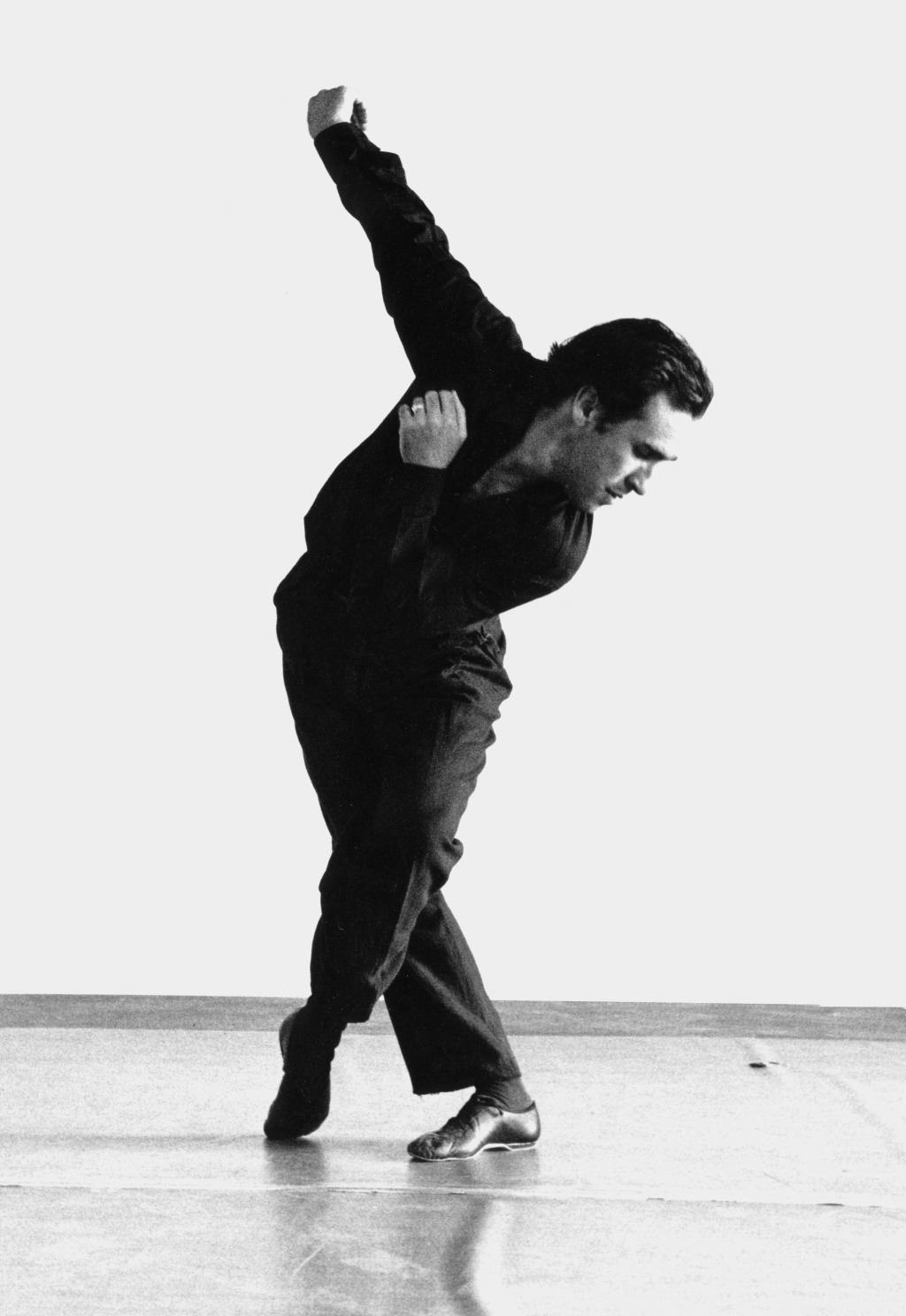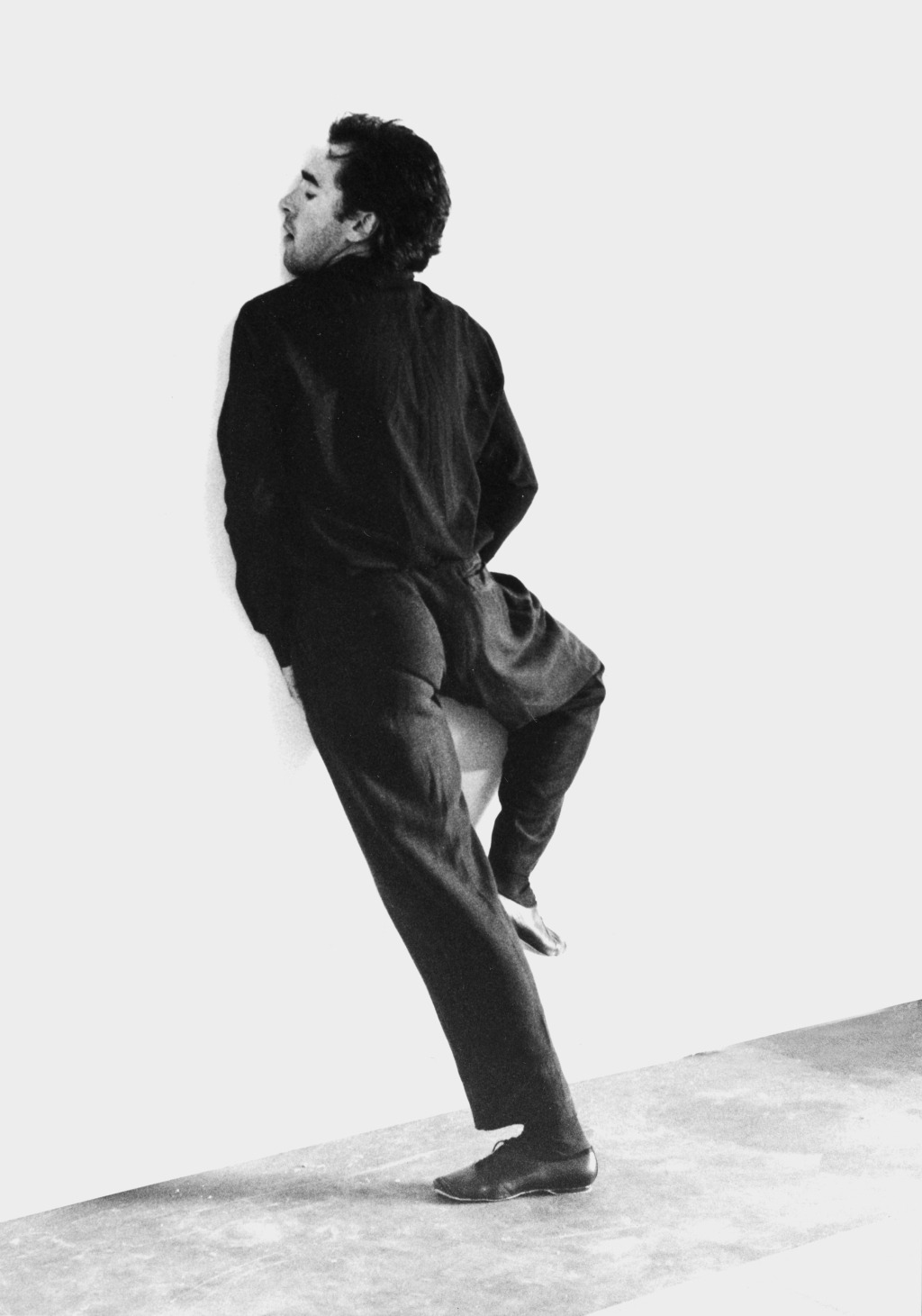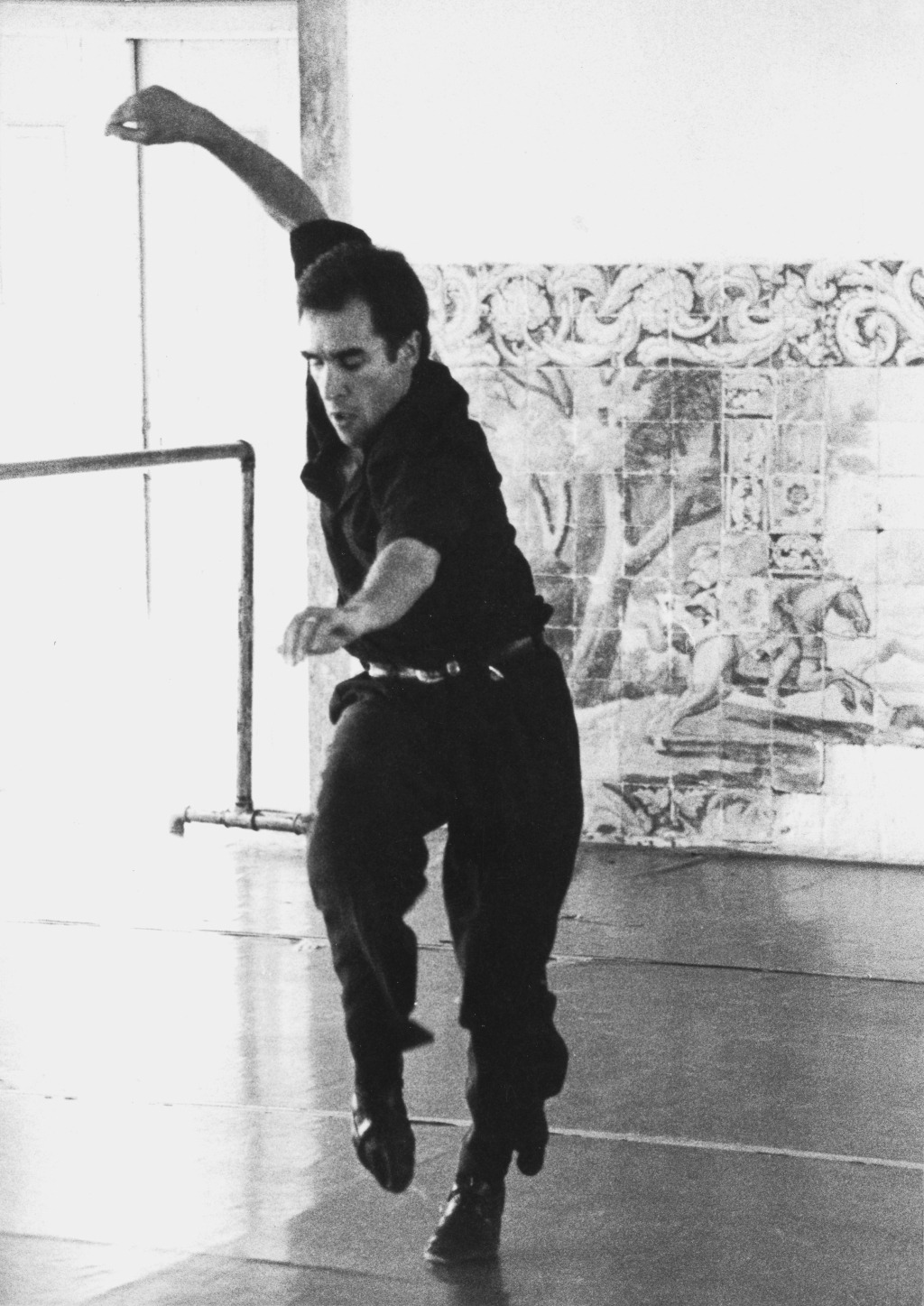Archive
Tachycardia was choreographed for the Lisbon Dance Company and had its world premiere in Viseu on 5 June 1988.
It was awarded the Revelation Prize by the newspaper Sete.
Choreography
Paulo Ribeiro
Music
Luís Cília
Voice editing and collection
Paulo Ribeiro
Lights
José Manuel Oliveira
Costumes
João Zhoraide
Maria João Ribeiro (execution)
“Youth went to die at the end of the world, in the silence of the truth.”
Celine
Choreography
Paulo Ribeiro
Music*
António Emiliano (como introdução ao bailado, ouve-se a canção Morgen, de Richard Strauss
Costume
Nuno Carinhas
Light
Rui Fernandes
Dancers
João Afonso
Luís Damas
Benvindo Fonseca
César Moniz
João Mouro
Rui Pinto
João de Sousa
with the presence of actor
Amélia Varejão
Sampled and processed voice
Inês Albuquerque Emiliano
Recording and mixing
Jorge Barata (parts 1 e 2) and José Manuel Fortes (part 3), at Angel Studio 2
Acknowledgments
Nuno Castelo Branco, Paulo Caiús, José Manuel Fortes, Frederico Serrano (Quico), António Reis (SPA)
*Music composed expressly for this ballet, commissioned by the Music Department of the Calouste Gulbenkian Foundation.
Performed, programmed and produced by António Emiliano, with the support and exclusive sponsorship of Caiús Music (Porto) Roland Portugal.
Modo de Utilização is a piece that in an unpretentious way and somewhat humorously counters the need to rationalise dance, providing it with room to exist by itself, and passing on a vital and poetic energy, in which the meaning of the choreography lies on that which is not said, but rather felt.
Choreography and interpretation
Paulo Ribeiro
Music
John Zorn, Ennio Morricone, George Fenton, Luiz Americano, Tia Amélia
Encantados de Servi-lo seeks to express itself as a great romance of the gesture, at the bottom of which, derisory, it trembles with all the flesh and souls. A lyrical and dense sculpture of bodies confronting, testing and embracing each other, like a throbbing heartbeat.
Choreography
Paulo Ribeiro
Costumes
Nuno Carinhas
Music
Luís Cília
Interpretation
Nederlands Dans Theater (1991)
Ballet Gulbenkian (1992)
Inquilinos evokes a playful and inconsequential love, a game that parodies amorous affection, between shy, nervous or jocular gestures.
Choreography
Paulo Ribeiro
Costumes
Nuno Carinhas
Music
Kronos Quartet: Mai Nozipo; The Lounge Lizards: Travel; Orquestra Brasília: Carinhoso
Interpretation
Ballet Gulbenkian
In Dançar Cabo Verde, Clara Andermatt and Paulo Ribeiro seek to establish an intercultural dialogue with the country, a bridge between the culture they bring with them and the one they discover, namely with traditional expressions of dance and music. An encounter portrayed in choreographic language that does not seek transcription or modernisation.
From a two and a half month artistic residency in Mindelo, on the island of São Vicente, comes a show where music and dance intersect in the expression of ten Cape Verdean and European dancers and nine musicians of Cape Verdean origin.
Dançar Cabo Verde won the ACARTE/Maria Madalena de Azeredo Perdigão prize in the 1993/94 season.
Artistic Direction and Choreography
Clara Andermatt and Paulo Ribeiro
Dancers
Amélia Bentes
Avelino Lopes
Carlos Tavares
Clara Andermatt
Félix Lozano
Manu Preto
Mónica Lapa
Patrick Harlay
Zenaida Mendes
Zé Silva
Zezinho Semedo
Musicians
Djosca
Malaquias
Mick Lima
Tchalé Figueira
Russo
Voginha
Tomar
Humberto Ramos
Music
Tamos a Desenrascar (original composition by Vasco Martins, voice sample of Travadinha, recording by João Oliveira), Como se o Mundo Ouvisse (Vasco Martins), Tanhuca (Nando), Passagem (Bau), Tarone, Sodade, Ó Nha Gente and Ó Bernold (popular themes)
Musical coordination
Margarida Martins
Costume design
Victor Vasco
Light
Rui Marcelino
Co-prodution
Lisboa’94 – European Capital of Culture, Instituto Nacional de Cultura de Cabo Verde
Support
Calouste Gulbenkian Foundation, Câmara Municipal de São Vicente,Cape Verde Embassy in Portugal (Cultural Centers of Mindelo and Praia)
Acknowledgments
Cape Verde Embassy in Portugal, Moacir Rodrigues and Leão Lopes (Mindelo)
“I tried to be straightforward in my interpretation and humour. From the musical comedy, remained the impulses of grandiosity and desperation to be present. Therefore I’m modest. Therefore Off!”
Paulo Ribeiro
Choreography and scenic device
Paulo Ribeiro
Soundtrack and musical composition
João Lucas
Costumes
Nuno Carinhas
Lights
Rui Marcelino
Interpretation
Ballet Gulbenkian


